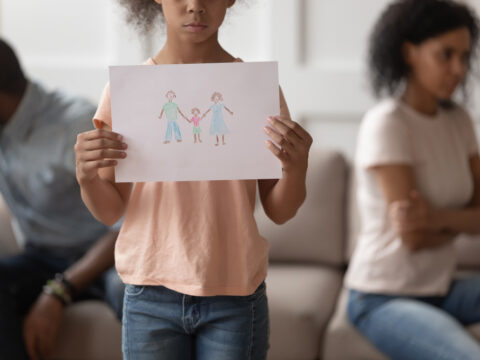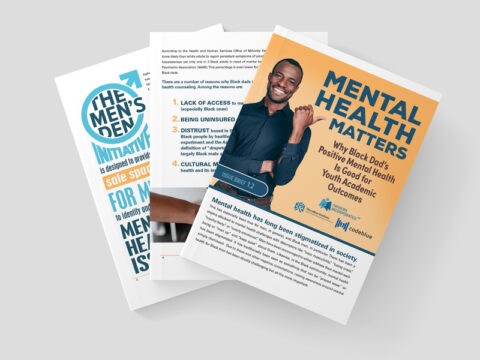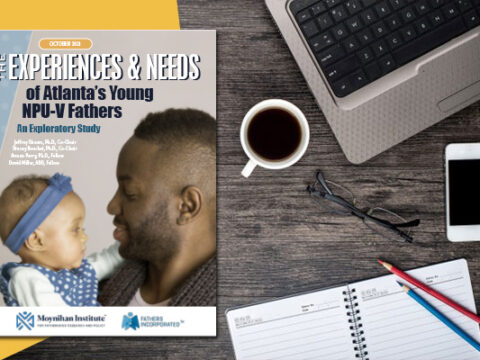Fathers Incorporated’s Statement on behalf of HB 96

Fathers Incorporated’s Statement on behalf of HB 96 (LC 41 2712/a)
(Domestic relations; revise presumption in cases in which the custody of any child is at issue)
Fathers Incorporated (FI) is a national 501(c)(3) non-profit organization with a 16-year history as a nationally recognized fatherhood promotion organization. FI is a leader in the fatherhood field and is known for its national and local media and outreach focus on improving father engagement in the lives of children. FI believes that the presence or absence of fathers shapes the way children view the world and interact with people and that fathers are an essential element in successful families and thriving, stable, healthy communities.
The FI Team offers a wide array of trusted partnerships; lessons learned from years of working with fatherhood programs; and a nimble, expert-led team and staff who support the critical work of responsible fatherhood.

Our values, integrity, and the priority we place on relationships and collaboration within our team and with the field undergirds project stability and fosters trust and cooperation among fathers and human services program operators throughout Metro Atlanta and across the country.
The Moynihan Institute for Fatherhood Research and Policy, FI’s research and policy advocacy arm, is pleased to provide the following statement in support of the on-going work of Georgia Parents for Kids’ Rights, Inc. to advance the collaborative success of an Equal Shared Parenting bill for children across the state of Georgia.
As HB 96 states in lines 13-17, FI supports the policy that “except in cases where there is evidence that either party engaged in abuse of the child, evidence of interspousal battery, or evidence of domestic abuse, there shall be a presumption, rebuttable by a preponderance of the evidence to the contrary, that a child’s interests are best served by equal or approximately equal parenting time with each parent.” FI supports this policy for several reasons discussed herein.

First, as an organization actively working to strengthen families and improve child well-being by equipping, supporting, and inspiring dads, we fully recognize the problem of domestic and family violence. FI proposes that conversations concerning men and domestic violence should start with an agreement on the following tenants:
- The safety of individual family members is paramount—violence is never an acceptable way to control or coerce desired or expected behavior, punish, retaliate, or deal with conflict.
- The majority of men are not violent, and most men “do not ever use violence” against women and children.
- Fatherless children are at a greater risk of suffering physical, emotional, and sexual abuse than are children living in two parent homes. Specifically, they are five times more likely to have experienced physical abuse and emotional maltreatment and have a one hundred times higher risk of fatal abuse than children living with both of their biological parents.
- “Fathers who nurture and take significant responsibility for basic childcare for their children (e.g., feeding, changing diapers) from an early age are significantly less likely to sexually abuse their children. These fathers typically develop such a strong connection with their children that it decreases the likelihood of any maltreatment.”
- Men, particularly fathers, have a positive and vital role to play in helping to stop all types of violence, and fatherhood and human services organizations are uniquely positioned to engage them in these efforts.
Second, “a presumption…that a child’s interests are best served by equal or approximately equal parenting time with each parent” is supported by a large body of research studies demonstrating positive associations among non-resident father involvement; fathers’ regular payment of child support; and children’s behavioral adjustment, psychological well-being, and academic success.
These benefits remained even when controlling for high conflict between the parents. It is also well understood and backed by a large body of evidence that any parental loss presents a significant risk factor and adverse child event (ACE) for any child.
Negative consequences result in part from a loss of paternal bonding and child rearing, as well as loss of financial and community resources available to children through their paternal attachments.
“Shared parenting arrangements in studied populations have mitigated these effects and benefitted children’s family relationships, economic stability, and social capital.”
Third, we also know that “families with encouraged forms of nonresident‐father involvement might be particularly receptive to intervention[s] aimed at facilitating positive father–child relationships.”
With more than one-in-four fathers who have children 18 or younger now living apart from them, a presumption of shared parenting can serve as one such intervention.
Without it, two major structural threats to fathers’ presence in their children’s lives remain: divorce and non-marital childbearing, with the latter making involvement much more tenuous for multiple reasons:
- Parenting time and child support are separate legal issues that must be addressed independently of each other for unmarried parents.
- Most child support orders for unmarried parents are established without any consideration of parenting time plans. Therefore, many unmarried fathers are required to pay child support, but they do not have the legal right to see and spend time with their children.
- According to the U.S. Census Bureau Survey of Custodial Parents, 72 percent of non-resident fathers had no legal visitation agreement in 2015, and 34 percent had no contact with their youngest child in the previous year.
- Black Americans have the highest rates of single-parenthood and non-marital births in the country, as do most people in families with children who receive means-tested benefits, which, among other things, leads to 1) Children from these households are 5 times more likely to live in poverty and 2) Black men are disproportionately denied legal rights to see their children and routinely dismissed as a resource to their children for anything other than child support payments. Black fathers are arguably the most ignored demographic group and members of families in our country.
- “Fatherhood is a relationship that is not independent of, but largely flows through and is contingent upon, the relationship between the father and the child’s mother.” We see and hear of this consistently in our direct service work with fathers. A presumption of shared parenting would help deter maternal gatekeeping that prevents father-child engagement.
We implore Georgia policymakers, who claim to place paramount importance of the “best interests of the child,” not to disregard father involvement, ignoring the vast body of research and FI’s own anecdotal experiences with fathers of color on the positive outcomes associated with father involvement and the dire consequences to children’s well-being when fathers are not treated as resources to families, children, and communities.
Fathers want to be involved; provide them with the legal opportunity to do so. It’s the right thing to do for families with children.



